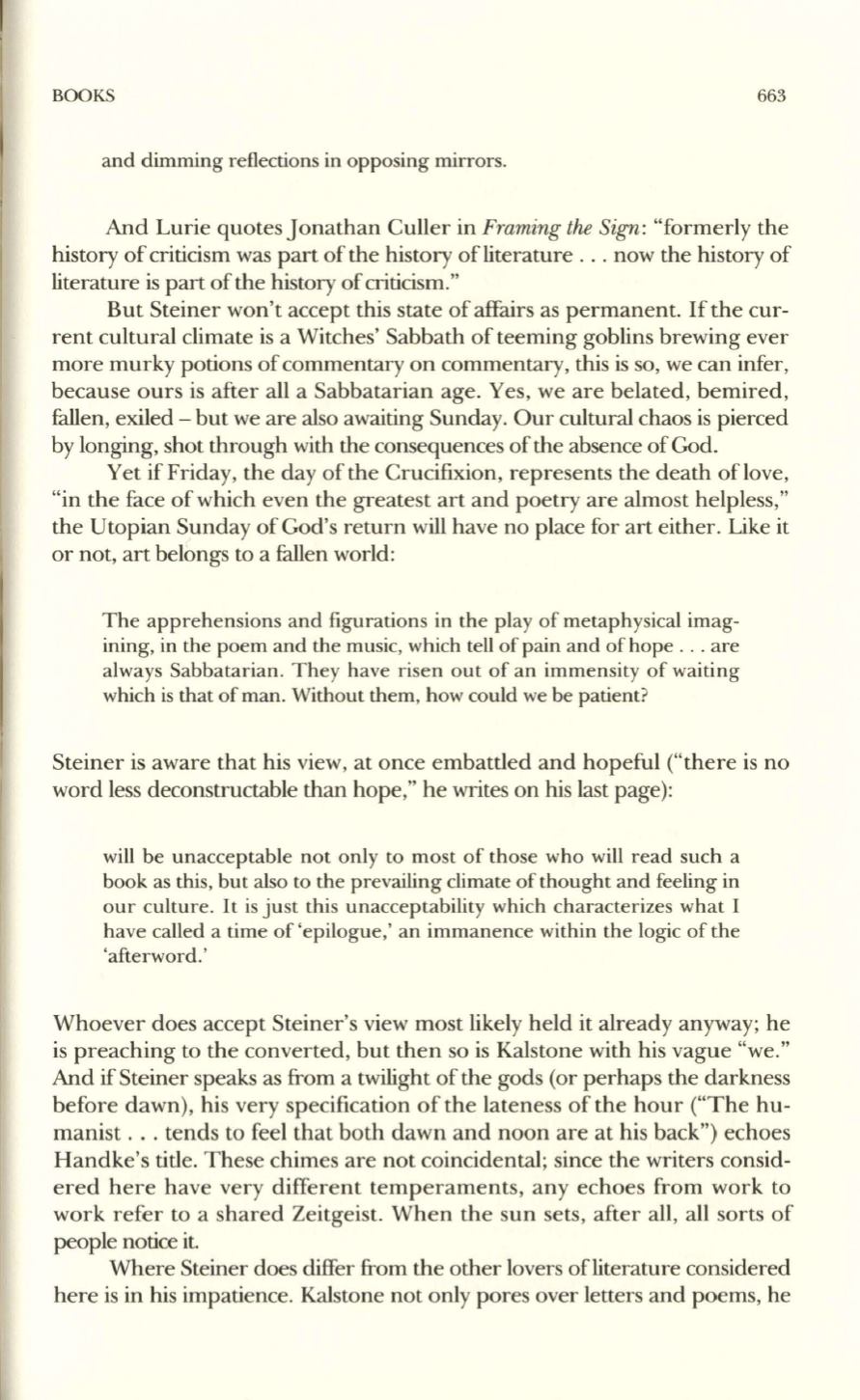
Bcx)KS
663
and dimming reflections in opposing mirrors.
And Lurie quotes Jonathan Culler in
Framing the Sign:
"formerly the
history of criticism was part of the history of literature ... now the history of
literature is part of the history of criticism."
But Steiner won't accept this state of affairs as permanent. If the cur–
rent cultural climate is a Witches' Sabbath of teeming goblins brewing ever
more murky potions of commentary on commentary, this is so, we can infer,
because ours is after all a Sabbatarian age. Yes, we are belated, bemired,
fallen, exiled - but we are also awaiting Sunday. Our cultural chaos is pierced
by longing, shot through with the consequences of the absence ofGod.
Yet if Friday, the day of the Crucifixion, represents the death of love,
"in the face of which even the greatest art and poetry are almost helpless,"
the Utopian Sunday of God's return will have no place for art either. Like it
or not, art belongs to a fullen world:
The apprehensions and figurations in the play of metaphysical imag–
ining, in the poem and the music, which tell of pain and of hope .. . are
always Sabbatarian. They have risen out of an immensity of waiting
which is that of man. Without them, how could we be patient?
Steiner is aware that his view, at once embattled and hopeful ("there is no
word less deconstructable than hope," he writes on his last page):
will be unacceptable not only
to
most of those who will read such a
book as this, but also to the prevailing climate of thought and feeling in
our culture. It is just this unacceptability which characterizes what I
have called a time of 'epilogue,' an immanence within the logic of the
'afterword.'
Whoever does accept Steiner's view most likely held it already anyway; he
is preaching to the converted, but then so is Kalstone with his vague "we."
And
if
Steiner speaks as from a twilight of the gods (or perhaps the darkness
before dawn), his very specification of the lateness of the hour ("The hu–
manist ... tends to feel that both dawn and noon are at his back") echoes
Handke's title. These chimes are not coincidental; since the writers consid–
ered here have very different temperaments, any echoes from work to
work refer to a shared Zeitgeist. When the sun sets, after all, all sorts of
people notice it.
Where Steiner does differ from the other lovers of literature considered
here is in his impatience. Kalstone not only pores over letters and poems, he


